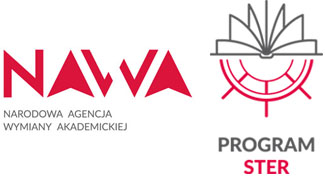Doctoral School Seminar – 4 April 2024, 16:30
Dear All,
this is a kind invitation for the Doctoral School Seminar on Thursday, April 4th 2024 at 4:30 PM CET.
? We also invite you to share our event on Facebook ?
Attendance is free. Please connect a few minutes in advance. Details of the connection are provided below the abstract.
➡️ prof. dr hab. Włodzisław Duch, head of the Neurocognitive Laboratory at UMK, Toruń
„Large foundational models, scientific discoveries and artificial consciousness”
Abstract:
Recently Artificial Intelligence (AI) has pushed the boundaries of what we though is possible. Large neural networks play a pivotal role in AI, enabling it to perform a wide range of tasks. These networks possess remarkable abilities, such as engaging in conversations in over a thousand languages, demonstrating imaginative prowess by creating stunning designs and surpassing human reasoning capabilities. I will explore the relationship of large neural networks with human brains.
Lately large multimodal models (LMMs) have expanded their learning capabilities beyond just text. They now learn from various sources, including images, videos, behavioral observations, and proprioceptive signals from robot sensors. This multidimensional learning approach enhances their understanding of the real world and their problem-solving skills. AI can write computer programs, control vehicles, develop strategies for companies, and tackle complex scientific problems. The computational creativity of large AI models is made possible by their training process and can be understood as an example of blind variation, selective retention model (BVSR). LMMs learn from vast amounts of data, identify complex patterns, understand context, and generate coherent responses. We have already seen some important discoveries in physics, mathematics, computer science and biology, made with the help of AI models, and can expect even more groundbreaking advancements in the near future.
Understanding of human psychology opens up new possibilities for AI applications. LMM training leads to the development of internal models that enhance their creative output. The emergence of new unexpected properties has led to AI systems that can comprehend the human psyche more accurately than humans themselves, exhibiting behavior that mimics consciousness, and showing deep self-reflection.
Bio:
Włodzisław Duch is the head of the Neurocognitive Laboratory in the Center of Modern Interdisciplinary Technologies, and the Neuroinformatics and Artificial Intelligence group in the University Centre of Excellence Dynamics, Mathematical Analysis and Artificial Intelligence at the Nicolaus Copernicus University, Toruń, Poland. PhD in theoretical physics/quantum chemistry (1980), postdoc at the Univ. of Southern California, Los Angeles (1980-82), D.Sc. in applied math (1987). President of the European Neural Networks Society executive committee (2006-2008-2011), Fellow of the International Neural Network Society (2013), and the Asia-Pacific Artificial Intelligence Association (2022), Expert of the European Union science programs, member of the high-level expert group of European Institute of Innovation & Technology (EIT). In 2014-15 he served as a deputy minister for science and higher education in Poland. His DuchSoft company has made in 1990 the GhostMiner data mining software package, for many years marketed by Fujitsu.
Please note that we are organizing the meeting via the WEBEX platform.
You may join the meeting via a web browser, but we highly recommend using the Webex application, which is more stable. Everyone who plans to participate in our seminars, please install the application before the meeting.
➡️ ECTS Points
Please remember that in order to receive ECTS points for attendance at seminars, you must be enrolled in that course in USOS (code SDSP-1).
➡️ General rules for the Seminar:
- The seminar is recorded and may be presented on the web/social media
- By joining the seminar you agree to it.
- Please, keep your cameras off and microphones muted during the seminar.
- Everyone can ask questions at any time during the seminar if not requested otherwise by the presenter.
- To ask a question raise your handand after an invitation from the speaker, press the ‘unmute’ option to speak or simply ask a question by writing it in a chat.
We wish you a fruitful meeting!
➡️ More information about our seminars
Doctoral School of Exact and Natural Sciences
Jagiellonian University


 FACEBOOK
FACEBOOK INSTAGRAM
INSTAGRAM